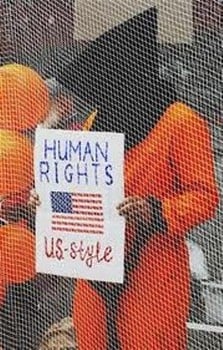Short Cuts: “The Legal Case for the Right to Make War”

Harold Koh is the former dean of Yale Law School and an expert in human rights law. As the State Department’s senior lawyer between 2009 and 2013, he provided the Obama administration with the legal basis for assassination carried out by drones. And despite having written academic papers backing a powerful and restrictive War Powers Act, he made the legal case for the Obama administration’s right to make war on Libya without bothering to get congressional approval. Koh, who has now returned to teaching human rights law, is not the only human rights advocate to call for the use of lethal violence. Indeed, the weaponisation of human rights – its doctrines, its institutions and, above all, its grandees – has been going on in the US for more than a decade.
Take Samantha Power, US Ambassador to the United Nations, former director of Harvard’s Carr Centre for Human Rights Policy and self-described ‘genocide chick’, who advocated war in Libya and Syria, and argued for new ways to arm-twist US allies into providing more troops for Obama’s escalated but unsuccessful war in Afghanistan. This last argument wasn’t successful in 2012, though she was at it again recently when interviewed on Charlie Rose. Or there’s Sarah Sewall, another former director of the Carr Centre, who was responsible for the material on human rights in the reworked US Army and Marine Corps Counterinsurgency Field Manual. Or Michael Posner, the founder of Human Rights First, now a business professor at NYU, who, as assistant secretary of state for democracy, human rights and labour in Obama’s first term, helped bury the Goldstone Report, commissioned by the United Nations to investigate atrocities committed during Israel’s 2008-9 assault on Gaza. Or John Prendergast, a former Human Rights Watch researcher and co-founder of Enough, an anti-genocide group affiliated with the Centre for American Progress, who has called for military intervention to oust Robert Mugabe.
It’s not just Americans: Michael Ignatieff ardently supported the invasion of Iraq in the name of humanitarian values. The inescapable Bernard-Henri Lévy was at the fore in demanding Nato go to war against Gaddafi. (Lévy has ‘moved on’ to other causes now that Libya is deep in chaos.)
Human rights organisations have also been at it. Although it’s the policy of Human Rights Watch not to comment on matters of jus ad bellum – whether or not a war should be waged – in 2011 the UN resolution authorising military force in Libya was warmly endorsed by the outfit’s executive director and top Washington lobbyist. Just days after airstrikes began against the Qaddafi government, a Human Rights Watch researcher called Corinne Dufka called for ‘nothing less than the type of unified and decisive action the UN Security Council has brought to bear in Libya’ to be employed in Côte d’Ivoire in an article published in Foreign Policy. Amnesty International consistently backed US military operations in Afghanistan, which it seemed to view as a Peace Corps programme with soldiers attached.
To read complete article click here:

